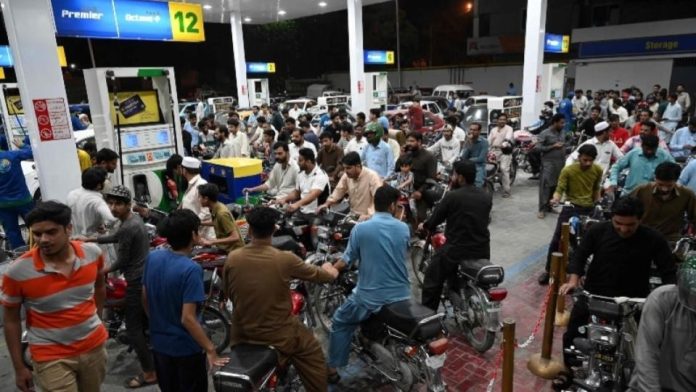In a move that has sparked concerns for everyday citizens, the Pakistan government has announced an increase in the prices of petroleum products. The decision, unveiled on Tuesday, comes amidst a backdrop of rising international oil prices and the country’s commitment to an International Monetary Fund (IMF) bailout. While the government aims to stabilize the economy, it recognizes the challenges faced by the public.
Finance Minister Ishaq Dar, in a video statement, emphasized the difficult choice they had to make. The price of petrol surged by 19 rupees and 95 paise, reaching 272.95 Pakistani rupees per liter. For high-speed diesel, the price rose by 19 rupees and 90 paise, settling at 273.40 Pakistani rupees per liter. While the increase was a necessary step to meet IMF requirements, the government is well aware of its potential impact on the lives of everyday Pakistanis.
Dar acknowledged that global fuel prices had been surging relentlessly in the last 15 days, making it challenging for the government to maintain stability without adjusting local prices. The commitment to the IMF’s standby agreement, reached after eight months of tough negotiations, necessitated implementing fiscal discipline measures, including the petroleum levy of up to 50 rupees per liter.
“We understand the hardships this might cause to our people,” Minister Dar stated with empathy. “If it were solely up to us, we would have opted for a smaller increase. But we are bound by our international commitments.”
The decision, however, couldn’t have come at a more precarious time, with general elections on the horizon. The coalition government faces political implications and the task of mitigating the impact of this price hike on the people they serve.
With an already high inflation rate of over 29%, citizens and businesses alike are feeling the pressure. The increase in fuel costs adds to the daily struggles of hardworking families and businesses, leaving many worried about the rising cost of living.
The government have sought to strike a balance between meeting IMF guidelines and ensuring the welfare of their citizens. Simultaneously, the central bank’s decision to maintain a tight monetary policy at 22% will add another layer of complexity to already failing economy. As the statistics bureau prepares to release the July inflation data, Pakistan watches with bated breath.

